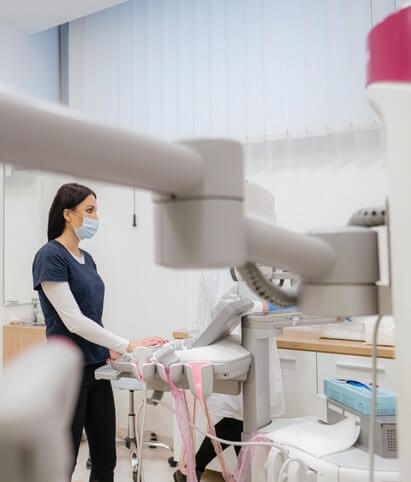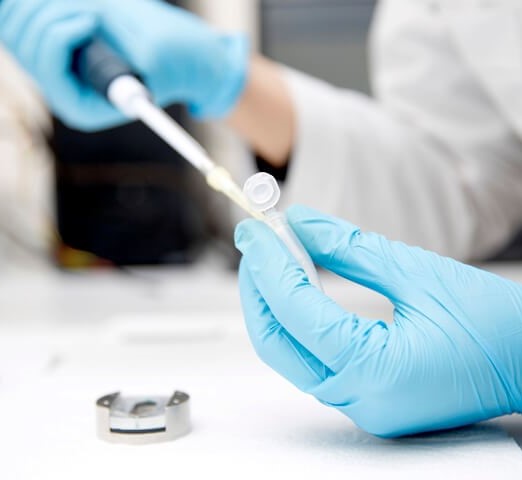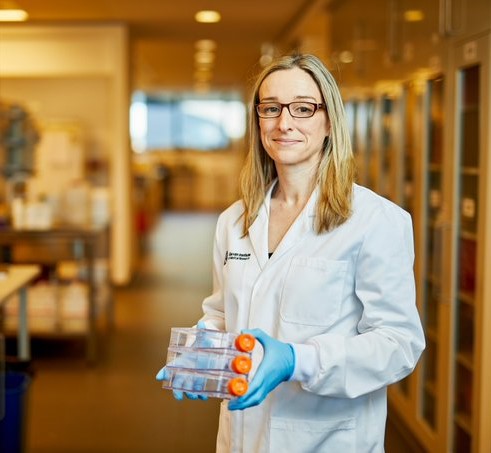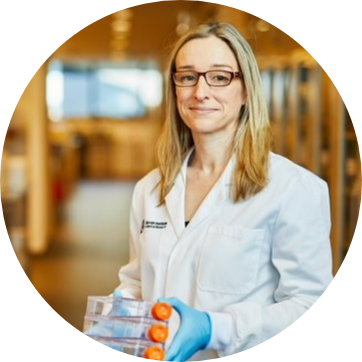For 2021 International Women’s Day, we chatted with Dr Caldon to discover more about her research focus to improve outcomes for people who develop therapy-resistant breast cancer.
She also shares insights on how she rises to the challenging nature of the field and her hopes for the future of women in cancer research.
Zeroing in on therapy-resistant breast cancer
Dr Caldon began researching breast cancer almost 15 years ago. Her focus was on understanding how breast cancer works and what makes it grow. However, after learning more about the issues breast cancer patients face, she identified an understudied area with a great need for research.
“Of the 3,000 women who die from breast cancer in Australia every year, about half die from late recurrence of the disease. This usually occurs five to 20 years after their first diagnosis,” Dr Caldon says.
“In these patients, their cancers respond well to initial hormone therapy treatment, and they continue to take preventative treatments. Yet the breast cancer somehow manages to recur after the five-year mark and is often resistant to many types of treatment.”
Dr Caldon’s Cancer Institute NSW fellowship will allow her to continue researching patients who develop late recurring therapy-resistant breast cancer. It's important work due to the scale of breast cancer in Australia and the difficulty in identifying which patients will experience recurrences.
“In this work, even though we're focusing on a target group, we're actually dealing with the whole breast cancer community. These patients live in fear of breast cancer recurrence. They are taking many long-term preventative treatments, often with adverse side effects, without knowing if they are actually needed or if they will even work.”
The opportunity to uncover new perspectives
One of Dr Caldon’s proudest achievements is her team's progress in developing new models of recurring breast cancer – research that has not been undertaken before.
It is no small feat – the team has been working on the models for almost four years, and it may take up to a decade to complete. The models will simulate the behaviour of the cancer, providing insight on its progression and treatment.
“The research is not yet published,” Dr Caldon tells us. “But with the fellowship from the Cancer Institute NSW, we are able to recommit to this long-term and important work.”
“I think this work is going to fundamentally change how we look at this disease. It will allow us to develop new ways to target drug-resistant breast cancer and stop the growth of these highly resistant cancer cells.”
Consistently rising up in a field full of challenges
This year’s International Women’s Day theme #ChoosetoChallenge highly resonates with Dr Caldon. “In our line of work, there are many setbacks,” she says, “For every idea, only 20% progress and bear fruit.”
“For me, choosing to challenge is about committing to innovation and producing novel strategies in cancer research.”
Dr Caldon’s team at the Garvan Institute, consisting of a postdoctoral researcher, research assistants and PhD students, keeps her motivated to continue.
“Our team is resilient in the face of setbacks and we talk openly about the things that don’t work,” Dr Caldon says. “We understand the importance of celebrating our failures. Failing means we’ve conclusively shown what didn’t work and we now know that it’s not the path to continue down.”
When it comes to generating new ideas, Dr Caldon and her team always look beyond their own discipline. They actively reach for inspiration and knowledge from other fields, from microbiology to other types of cancer research, to see if they can apply it to their own.
Continuing the work of the women who paved the way
Dr Caldon believes there is still work to do before gender equity exists in cancer research. She cites long-term salary security as vital to reaching this goal.
"You may need to take maternity leave but this is a problem if you’re on a one-year contract that isn’t extended or that doesn’t support part-time work,” Dr Caldon explains. “These are things that prevent women staying in the field – it’s what leads to talented women having to drop out.”
Dr Caldon finds great inspiration in the female leaders in her field. “These women [who came before me] endured a much more gender imbalanced system. Despite this, they reached amazing heights due to their pure passion for their work.”
She believes these pioneers have been instrumental in allowing the next generation of female cancer researchers to emerge.
“I'm hoping that we as female researchers can continue the gender equity work of those who came before us. I'm sure we'll see more benefits take place for women and increased diversity in cancer research as we continue into the future.”
Dr Liz Caldon is a Group Leader Cancer Researcher at the Garvan Institute of Medical Research. Read her full biography at the Garvan Institute website. You can also learn more about the recipients of the Cancer Institute NSW’s 2021 career support grant recipients.




